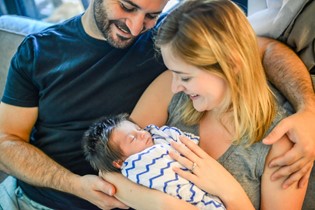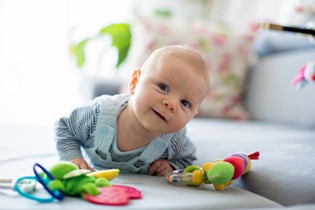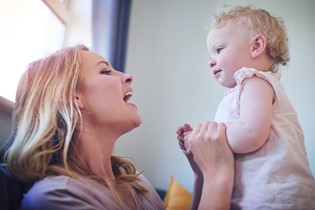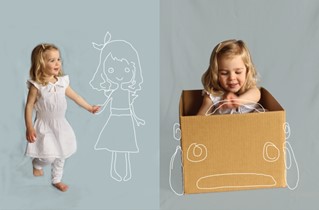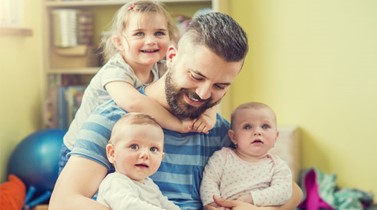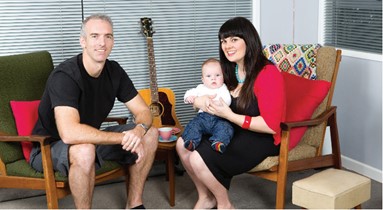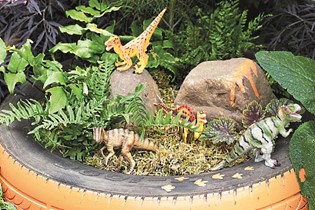Have you appointed a guardian for your child?
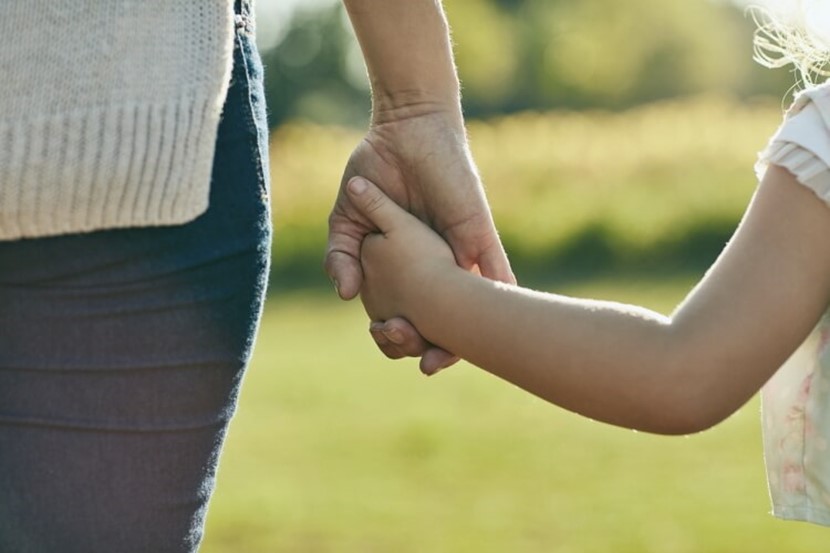
What can you do to make sure your kids are looked after if you're no longer around? We look at what's involved in appointing guardians.
No one likes thinking about not being there as their kids grow up but there is a worse scenario: the kids being left alone with no one to look after them or protect their interests. This is why many parents appoint guardians in their wills. It's most unlikely that you and your partner will both die before your children reach adulthood but wills are designed to cover those "what if?" situations so you have the satisfaction of having done your absolute best for the kids.
In legal speak, parents are known as children's "natural guardians" and they can pass on guardianship in their wills (or a legal document known as a Deed) to "testamentary guardians", usually close friends or relatives. Kirsten Ferguson, OHbaby!'s legal expert, says, "It is certainly wise to appoint a testamentary guardian in the very unlikely event that both you and the child's other parent or natural guardian dies. But it is also important to think about how your child will be raised if just one parent dies.
"Appointing a guardian in such circumstances is less about whether you 'trust' the surviving parent's capabilities and more about ensuring your child has all his interests represented. It can also prevent possible conflict, perhaps between the paternal and maternal sides of the family, and prevent detachment from the wider family circle, which can happen over time with or without any intention.
"Whatever you decide, it is a decision to be made holding the best interests of your child in your mind rather than anyone else's interests or emotions - including your own," she says.
"It's important to note, however, that these testamentary guardians don't have automatic right to the day-to-day care of the child. Yes, they have the right to be involved in making decisions that will affect the child's life, such as choice of school and where he lives, but if the intention of the parents is that the guardian will also be in charge of day- to-day care then that must be stipulated in the will."
Henry Stokes, Managing Solicitor for the Northern Region of the New Zealand Public Trust, says the vast majority of parents who choose guardians do mean for them to have day-to-day care.
"Mostly, it's assumed that guardians will have day-to-day care but sometimes it's separated out," he says.
"If other family members have issues with that they have to apply to the Family Court and the court makes the decision."
Who to choose?
While it's rare for both parents to die while their children are young, a more common scenario is that a couple splits up, then later one of them dies. In this situation, it's helpful to have a guardian to protect the children's interests on behalf of the deceased parent.
Henry Stokes says even in the most amicable marriage break-ups, appointing a guardian is a good idea to ensure your wishes for the children are carried out.
"That guardian then, moving forward, has the right be involved with the other parent in decision-making about schooling and where the children live."
It's important to choose someone with values and morals similar to your own because it's almost impossible to predict what issues may crop up in the future.
"It's extremely difficult to look ahead and put anything concrete in place," says Henry. For example, you can't specify a chosen school because it may be best for the children to move away from the town or city where they've lived all their lives.
However, don't get carried away and appoint too many guardians - this is a recipe for disputes in the future as all appointed guardians need to agree over any decisions involving the children.
"Thinking pragmatically about it, it would also be a good idea to communicate your wishes and intentions to the person in question before their appointment becomes necessary. You might even like to go into detail about your plans or goals for your child so he understands your perspective on various big decisions that he might be involved in making," says Kirsten.
"It is also worth reviewing your guardian appointee from time to time. Is he still the best candidate for the role? His life may have changed, or your perspective may have. Either way you might need to update your will from time to time to ensure that if the time comes the best person to make decisions for your child is the one you have appointed."
However, as a word of warning she adds, "While it might be our desire to ensure the right person steps in to become a 'parent' to our child when we're gone, it makes sense that our wishes cannot legally bind someone to stepping into that significant role. For this reason, a will cannot confer irrevocable rights of guardianship. That is, regardless of what you put in your will, the Family Court can be asked to review the appointment."
How does it work?
If you have a will, your estate will be held in trust for your children until they reach 20 (or whatever age is specified in the will).
"If there's a will with trustees and executors and the children are the beneficiaries, the estate's automatically to be held in trust," says Henry.
If there's no will or guardians and both parents die before their children reach adulthood, whoever wishes to be guardian of the children would need to apply to do so to the Family Court. Whether the family home is sold or not depends on what's best in each situation, for example, is it financially viable for the guardian and children to keep living there?
Although the money in trust is set aside for the children, the appointed guardians who have day-to-day care of the children can apply to the trustee and executor (usually the same person) to access such funds. The funds might be to cover certain expenses such as a school trip, or even a holiday to Disneyland.
"It's up to the trustees to consider that request and then make a decision as to how much is given," says Henry.
"There would be a lot of contact between the executor of the estate and the guardian. The guardian can make certain decisions but with information from the executor of the estate.
"With the Public Trust, if you made a will and appointed a guardian and something happened to you and your partner, we would be in quite close contact with that guardian - we need to know what's happening with the children and what needs and requirements there are to ensure the estate provides for them as much as possible."
Guardianship of a child ends when they turn 18 or get married (which includes entering into a civil union or de facto relationship). It can also end because of a decision from the Family Court, where there is no longer an appropriate purpose for the person to be guardian of the child.
In case of argument
Did you know a natural guardian - that is, a mother or father - has no more rights than a testamentary guardian? This means if Mum dies, having appointed her best friend as guardian, Dad must consult this friend over any important decisions such as where the children live, the school they attend, medical treatment decisions or name changes.
And the main causes of disputes are where the children live - who lives with them - and where they go to school.
This is why it's important to choose guardians carefully and avoid choosing more than one or two. All guardians, whether they have day-to-day care or not, must agree on any decision. But each guardian has no more rights than any other.
If guardians cannot agree on decisions about a child, they can request counselling to try to resolve the dispute or make an application to the Family Court for directions. And the court will make its decision based on what's in the best interests of the child's welfare.

AS FEATURED IN ISSUE 19 OF OHbaby! MAGAZINE. CHECK OUT OTHER ARTICLES IN THIS ISSUE BELOW




